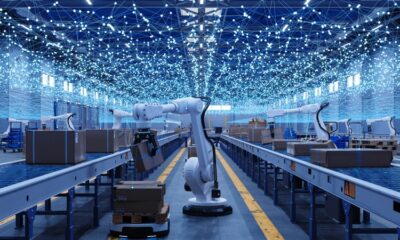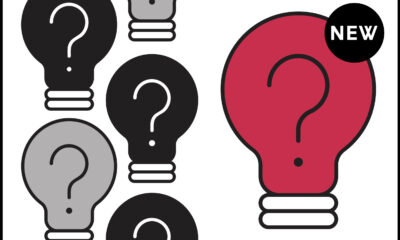Science
MIT’s FoodRes.Ai Printer Transforms Food Waste into Resources

A groundbreaking collaboration at the Massachusetts Institute of Technology (MIT) has led to the development of the FoodRes.Ai Printer, a technology that aims to revolutionize how society handles food waste. This innovative system combines artificial intelligence (AI) and 3D printing to convert discarded food materials into useful products, presenting a sustainable solution to resource management.
The FoodRes.Ai Printer operates on a straightforward concept: it transforms food scraps into printable materials. This process addresses the longstanding challenge of assessing the value of waste materials for 3D printing. Traditional methods of creating suitable printing materials have often proven complex and resource-intensive. The introduction of this technology simplifies that equation significantly.
One of the key challenges in this process is the variability of food waste. Food scraps can exist in numerous conditions and compositions, making them less than ideal for conversion into usable materials. To tackle this, the FoodRes system employs advanced AI capabilities that efficiently analyze and process the waste. As designer Biru Cao explains, the mobile application associated with the printer generates “recipes” for various 3D printing options based on uploaded photos of the raw materials.
Efficiency and Customization in Waste Management
The design of the FoodRes.Ai Printer emphasizes user-friendliness and practicality. It requires only basic raw materials and some natural additives to function effectively. Users can upload images of their food waste directly to the AI, which then formulates viable printing options. This level of customization allows for the creation of diverse objects, including potentially entire dinner sets, tailored to individual needs.
The implications of this technology extend far beyond merely creating products from waste. The potential for converting any type of waste into usable materials represents a significant leap in sustainability. With the ability to efficiently manage and repurpose resources, the FoodRes initiative could reshape waste management practices across various sectors.
Looking Ahead: The Future of Resource Management
As the FoodRes.Ai Printer continues to evolve, its impact on materials science and waste management will be closely monitored. This technology not only enhances the efficiency of resource utilization but also opens new avenues for developing innovative materials. The concept of reducing waste while simultaneously creating valuable products marks a pivotal moment in sustainability efforts.
The practical applications of the FoodRes technology suggest a future where waste is no longer just refuse but a resource that can be transformed into something useful. If the system scales effectively, it could lead to significant advancements in commercial 3D printing and materials management.
In summary, the collaboration between MIT, AI, and 3D printing represents a forward-thinking approach to an age-old problem. The FoodRes.Ai Printer stands as a testament to the innovative spirit at MIT, showcasing how technology can provide practical solutions to pressing global challenges.
-

 World3 months ago
World3 months agoScientists Unearth Ancient Antarctic Ice to Unlock Climate Secrets
-

 Entertainment3 months ago
Entertainment3 months agoTrump and McCormick to Announce $70 Billion Energy Investments
-

 Lifestyle3 months ago
Lifestyle3 months agoTransLink Launches Food Truck Program to Boost Revenue in Vancouver
-

 Science3 months ago
Science3 months agoFour Astronauts Return to Earth After International Space Station Mission
-

 Technology2 months ago
Technology2 months agoApple Notes Enhances Functionality with Markdown Support in macOS 26
-

 Top Stories1 week ago
Top Stories1 week agoUrgent Update: Fatal Crash on Highway 99 Claims Life of Pitt Meadows Man
-

 Sports3 months ago
Sports3 months agoSearch Underway for Missing Hunter Amid Hokkaido Bear Emergency
-

 Politics2 months ago
Politics2 months agoUkrainian Tennis Star Elina Svitolina Faces Death Threats Online
-

 Technology3 months ago
Technology3 months agoFrosthaven Launches Early Access on July 31, 2025
-

 Politics3 months ago
Politics3 months agoCarney Engages First Nations Leaders at Development Law Summit
-

 Entertainment3 months ago
Entertainment3 months agoCalgary Theatre Troupe Revives Magic at Winnipeg Fringe Festival
-

 Politics1 week ago
Politics1 week agoShutdown Reflects Democratic Struggles Amid Economic Concerns





















